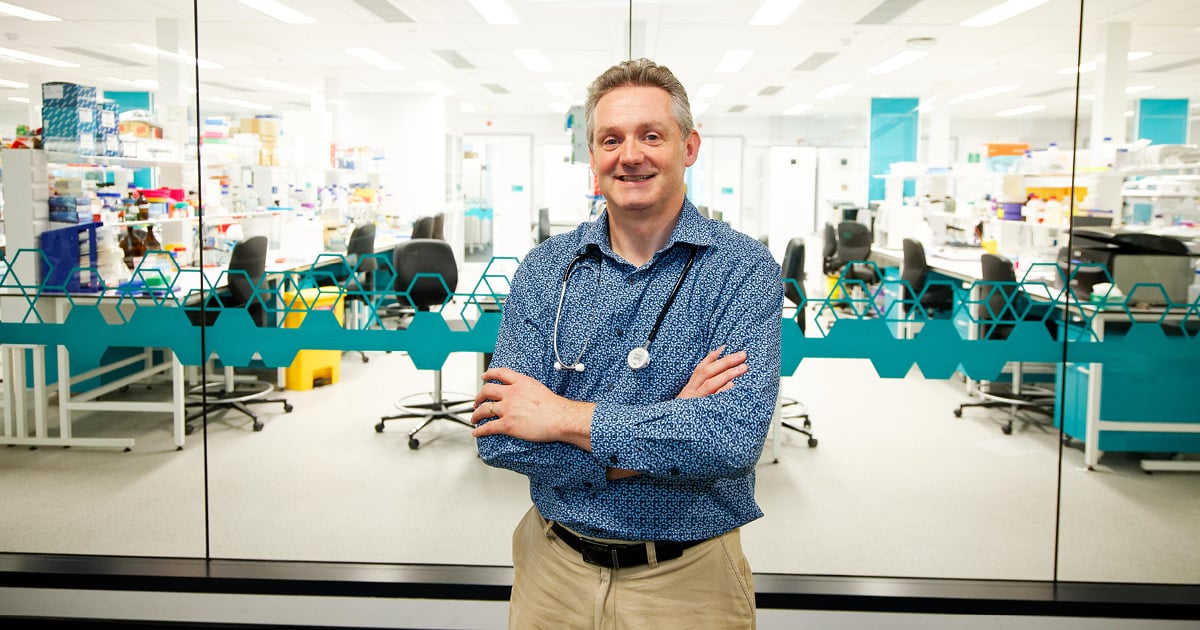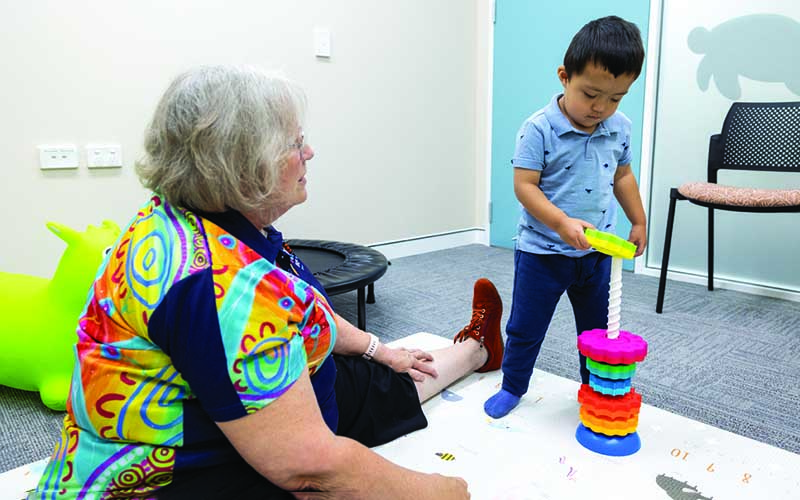Search

Australian children diagnosed with a brain tumour now have a better chance of accessing the best treatment for their disease thanks to a trans-Tasman collaboration spearheaded by The Kids Research Institute Australia cancer researcher Professor Nick Gottardo.

The Kids Research Institute Australia disability researcher, Associate Professor Helen Leonard, played an important role in the identification of the differences that define CDD, thanks to her extensive experience researching Rett syndrome and running an Australian online database tracking Rett cases.

The Walkern Katatdjin (Rainbow Knowledge) project has produced a suite of resources to help services become more inclusive.

Discover how this family is benefitting from CliniKids' evidence-based therapies.
Research
The causal impact of mental health on tobacco and alcohol consumption: An instrumental variables approachThe reciprocal relationship between psychiatric and substance use disorders is well-known, yet it remains largely unknown whether mental health morbidity causally leads to addictive behaviours. This paper utilises a fixed effects instrumental variables model, which is identified by time-varying sources of plausibly exogenous variations in mental health, and a nationally representative panel dataset from Australia to present robust evidence on the causal impact of mental distress on cigarette smoking and alcohol drinking behaviours.
Research
Down syndrome or Rett syndrome in the family: Parental reflections on sibling experienceSiblings of children with intellectual disability have unique family experiences, varying by type of disability.
Research
How Families Manage the Complex Medical Needs of Their Children with MECP2 Duplication SyndromeMECP2 duplication syndrome (MDS) is a rare, X-linked, neurodevelopmental disorder resulting from the duplication of the methyl-CpG-binding protein 2 (MECP2) gene. The clinical features of MDS include severe intellectual disability, global developmental delay, seizures, recurrent respiratory infections, and gastrointestinal problems. The aim of this qualitative study was to explore how the parents of children with MDS manage their child's seizures, recurrent respiratory infections, and gastrointestinal symptoms, and the impact on them as parents.
Research
The relationship between pitch contours in infant-directed speech and early signs of autism in infancyMother-infant interactions during the first year of life are crucial to healthy infant development. The infant-directed speech (IDS), and specifically pitch contours, used by mothers during interactions are associated with infant language and social development.
Research
Transition models of care for type 1 diabetes: a systematic reviewManaging the care regimen for Type 1 Diabetes is challenging for emerging adults, as they take on greater responsibility for self-management. A diverse range of models of care have been implemented to improve safety and quality of care during transition between paediatric and adult services. However, evidence about acceptability and effectiveness of these is limited.
Research
Impact of Body Composition on the Accuracy of a Medtronic Guardian Continuous Glucose Monitoring SystemContinuous glucose monitoring systems are used in therapeutic decisions for diabetes management, however, the impact of body composition on CGM accuracy is not known. Body composition variables were collected in an observational study designed to determine the accuracy of an investigational Medtronic Guardian™ sensor 3.
